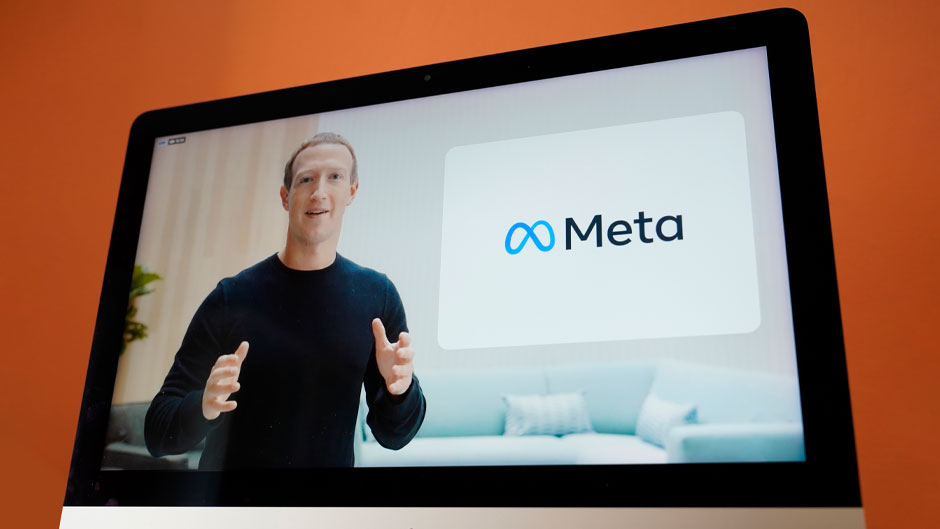The move to bring Facebook, Instagram, and WhatsApp under the Meta umbrella heralds the company’s launch into the Metaverse, the immersive virtual platform, and constitutes a name change common for businesses seeking to broaden their initial positioning, according to Claudia Townsend, a marketing professor in the University of Miami Patti and Allan Herbert Business School.
Townsend compared the motivation for the name change to others in recent years such as “Starbuck’s Coffee” shift to “Starbuck’s,” “Boston Chicken” to “Boston Market,” and even “Kentucky Fried Chicken” to “KFC,” which all expanded company portfolios.
“These name changes happen when a company wants to go beyond what their initial positioning was and expand themselves,” said Townsend. “It’s certain that this has been in the pipeline for a while as Facebook has been focusing on expanding into the immersive virtual realm for years.”
Mark Zuckerberg, company CEO and one of the world’s richest persons, has reportedly spent billions of dollars in recent years to explore potentialities for the next new social platform. He has spent $10 billion this year alone.
Yet while the move appears to be strategically driven, Townsend questions the timing—as have Facebook’s many critics.

“A lot of people are saying this is a PR [public relations] stunt, because right now Facebook is not in a good place in the public eye and they’re trying to change the narrative,” Townsend added. “Rather than this being about the lack of trust in Facebook, now they can change the conversation and make it about the fact that they’re doing all this work on the immersive virtual realm.”
Facebook has faced increased criticism and media scrutiny in recent weeks, in part for accusations and internal documents leaked by former employee Frances Haugen about how much the company knew about the harmful effects of its impact on young people and their mental health. Other criticism has centered on the company’s unwillingness to stem the use of its primary platform to foment violence and spread misinformation.
Townsend, who studies consumer behavior, said that the immediate backlash regarding the name change was to be expected.
“Whenever you change a logo, a name, anything about a product you’re almost always going to get backlash because consumers don’t like their brands to change,” she noted. “The immediate response is negative, but in this case, they’re not changing the name of the product so that’s less of an issue here. The backlash they’re getting is for the timing.”
The change is largely cosmetic, Townsend pointed out. Beginning on Oct. 28, Meta became the parent company and the stock ticker changed to “MVRS.”

Ann Olazábal, a professor in the business law department at the Miami Herbert Business School, concurred that the transition was not much more than a rebranding effort.
“Meta can emerge as the newer, fresher, umbrella organization, with a bright and clean future,” Olazábal said.
She highlighted that regardless of the timing or motivation, the move will have no impact on potential liabilities arising from the company’s past conduct.
“Even if Facebook’s board and managers had ‘killed’ Facebook, letting its corporate charter lapse and moved all of its assets—figuratively speaking—to a new corporation called Meta, with new bank accounts and a new board of directors, Meta is still the same corporate parent, and legally would be considered a ‘mere continuation’ of Facebook. As such it is liable for Facebook’s prior legal obligations,” Olazábal noted.
She doubted the renaming, or any corporate restructuring, was done with any real intention of hindering, delaying, or defrauding creditors, including any future judgment creditors based on past conduct. But she said that if it were so determined, the courts would ignore the new structure, leaving liability on the prior entity or entities.
Despite the fact the move has been contemplated for some time, many—including Townsend—found a precedent in the 2003 name change of tobacco company Philip Morris to Altria.
“They were also then very much in the public eye. It had just come out that they knew about the harmful effects of tobacco—and so it was the same idea,” Townsend pointed out. “Maybe there’s a younger generation now that doesn’t know Altria as Philip Morris and so maybe it’s worked, but for most of us it didn’t change anything. We know who Altria is; the name change didn’t change our perspective on the company.”
Yet despite the swirling criticism of Facebook, Townsend doubted there would be much impact on the company’s reputation.
“Part of what they’re doing is distancing themselves from the issues,” she said. “Now on the corporate side we’re not going to hear about Facebook, we’re going to hear about Meta and they’ll be emphasizing that Facebook is just one small part of the portfolio. So, even if investors or consumers don’t approve of what’s going on with Facebook, the name change emphasizes that the company is doing other things. The name is no longer synonymous with the troubling part of it.”
Beyond the initial backlash for the name change, this is not going to be a big deal. Townsend suggested the move will soon fade out of the news cycle and that it’s largely “irrelevant” from the consumer perspective.
The longer impact may be felt on the investor side, she said, and the longer-term challenge will be if the company can rectify some of their business practices that have come under such scrutiny.
“They’re just changing their name, and a name doesn’t change who you are,” Townsend said. “Facebook is going to remain Facebook.”

